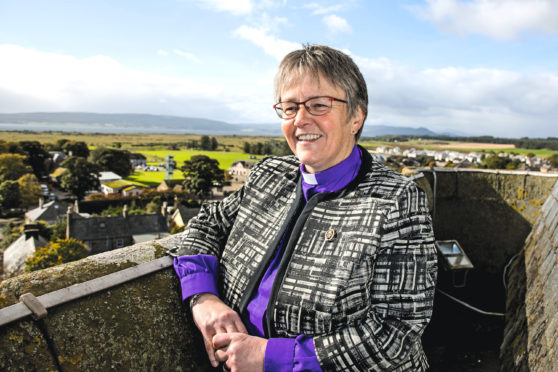I had to go to Northern Ireland for a meeting and was amazed at the number of people, of all nationalities, who were travelling wearing face masks.
I found myself wanting to stop them and ask them why?
I, of course, wimped out and did no such thing.
There will be those who are wearing a mask because they have a cold and very kindly don’t want to spread any germs to others.
Then there will be those who are worried about catching a bug.
Perhaps people whose health is not great and for whom even the common cold could cause major problems.
Then again, there will be those who are further travelled and who are genuinely worried about coronavirus.
It’s hard to believe the amount of harm a single virus such as the one that has been so virulent in China can do.
Unseen, it works its way from one person to another through the likes of respiratory droplets.
Current NHS advice is that people should wash their hands often, using sanitising gel if necessary and, when coughing or sneezing, they should cover their nose and mouth with a tissue or a sleeve – not a hand.
Used tissues should be put in the bin immediately and hands washed again.
The chances of infection are deemed to be low to moderate in the UK but since no one knows who is or who might be carrying the infection, I suppose it’s wise to be cautious when among crowds of people.
Especially because while we may not be able to see the virus itself, the consequences are all too visible.
More than 2,000 people have died from the strain and over 75,700 have been infected – so far.
Those are big numbers.
There is, however, another virus, which doesn’t gain nearly as much attention in the press – though it could prove to be every bit as lethal as coronavirus.
And it’s far more widespread.
No one seems to be talking very much about the precautionary measures that need to be taken to protect against it.
Yet those precautions are desperately needed now.
This virus is also unseen.
It is every bit as difficult to identify those who are carrying it and the consequences are all too obvious and devastating.
There have been various outbreaks over these last few weeks in places as disparate as here in the United Kingdom, Germany, Nigeria and Burkina Faso.
But there is virtually no country in the world untouched by it.
This virus spreads not through sneezes or coughs but far more insidiously through thoughts, words and looks.
In the early stages it seems harmless enough but, once this particular virus gets a hold, it becomes incredibly dangerous.
It can take a variety of forms, from an impatience with others because they are different, to outright suspicion of those who look or sound unlike “us”, to a lack of willingness to tolerate anyone whose language or skin colour, traditions or faith practice are not what “we” are used to.
Once the virus has a toehold, the door is opened to the development of full-blown hatred virus.
That’s when people, because of their skin colour or accent or dress, are told to “go home” – even when they are at home.
That’s when Germans of Turkish descent, Christians in Burkina Faso or Nigeria, as well as people in the street in London, are shot at and killed or maimed.
At a time when all sorts of extremism are on the rise – political, national and religious – what are we doing about looking for ways of guarding against the spread of such hatred?
As with coronavirus we, as individuals, need to take simple precautions that could see this virus contained and then eradicated.
Just as a face mask can stop the spread of infection, regular attention to the way we speak to and treat others could halt the spread of hate.
Do we treat others as we expect them to treat us?
It’s a simple enough measure.
Just as the habit of regular handwashing can protect against disease, forming a habit of refusing to say what might hurt or offend would be – and is – an incredible barrier to the wounds words can inflict.
As Thumper the rabbit in that ancient film Bambi, so wisely said: “If you can’t say somethin’ nice, don’t say nothin’ at all.”
There will be those who think this column is a bit overdramatic but unless human beings throughout the world get a grip and make the effort to treat one another as fellow human beings, equally of value, more and more people are going to die simply because someone, somewhere thinks they’re expendable.
There will be, too, those who say it is people of faith who are the worst offenders.
There is not a religion in the world that calls any of its followers to take the life of another.
None.
We should be intolerant only of intolerance.
You and I can make a difference – let’s start.
The Very Rev Susan Brown is minister of Dornoch Cathedral and the former moderator of the General Assembly of the Church of Scotland










